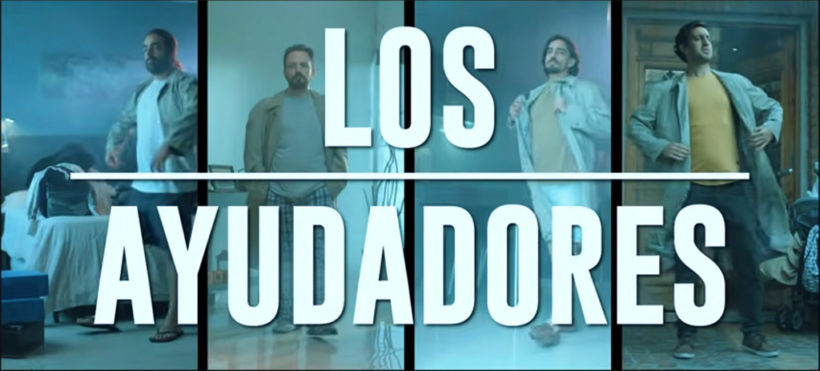“Amigo se cuenta”, “Yo me ocupo” and “Sin mochilas” are three campaigns strategically designed by Spotlight, a joint initiative of the European Union, to build societies that respect and empower women, taking into account the different aspects that converge in the idea of preserving the physical and mental integrity of women and girls.
Using the new information channels that bypass borders, shorten distances, and allow messages to be amplified in remote areas, which previously remained uninformed and were affected by inequality of knowledge, the UN has carried a clear message throughout Argentina in favour of gender equality and against violence against women.
Through the Spotlight initiative, a collaboration between the United Nations and the European Union focused on eradicating gender-based violence globally, three campaigns were produced that went viral even among supporters on other continents.
The first campaign, “Amigo, tell yourself”, was launched in October, and was followed in early November by “I care” and later that month by “No backpacks”, which coincided with the 16 Days of Activism Against Gender Violence following the International Day for the Elimination of Violence Against Women and Girls.
Amigo, be counted
Aimed at adolescent boys between the ages of 12 and 17, the objective of this campaign was to encourage reflection on the importance of promoting healthy masculinities, free of prejudices and that distance themselves from machismo as a culture of violence and discrimination, also breaking with macho complicity within groups of boys.
The campaign included two videos and five animated tutorials that provide concrete tools to promote behavioural change on issues such as complicity in groups of friends, harassment and consensus in sexual relationships and the participation of men in household and care tasks.
As many as 50 male role models who were invited by Spotlight shared the posts on their social networks, generating an impact on Instagram that was followed by 15 million people, not counting the official networks of UN agencies and the European Union. The campaign’s name: Friend be counted trended on Twitter on the day of the launch.
I care
In Argentina, the Permanent Household Survey shows that while women spend 6.4 hours a day on household chores, men spend only 3.4 hours. In addition, 84 per cent of single-parent households are headed by women, which further reinforces this overload.
Women are responsible for 65% of household chores compared to 35% of men, and at least half of women admit to being overburdened since the beginning of the coronavirus pandemic. A problem that is replicated in other countries.
I take care of myself, which was materialised through a series of videos and pieces for social networks, appealed to everyday scenes approached through humour with the aim of reflecting how naturalised it is in society that household and care tasks are the responsibility of women and how this naturalisation stems from gender stereotypes that serve men to avoid responsibilities.
The campaign, which went viral at the beginning of November when it was launched, highlighted the figure of the helper, which refers to a man who only takes care of household chores when asked or is waiting for instructions.
“Being a helper is not enough, neither is waiting to be asked” is one of the central ideas of the campaign, and it not only became one of the most watched videos in Argentina, but also transcended to the international level and was replicated in social networks and online media in Uruguay, Paraguay, Mexico, Peru, the United States, Spain, France and Turkey, making it clear that the burden of household chores for women is a global problem.
No backpacks
The Sin mochilas campaign, created with various graphic and audiovisual materials, including the main spot called “Dreams”, which shows several young people writing a letter to their fathers and mothers asking them to accompany them to grow up in a more free and equal way, is supported by the Ministry of Women, Gender and Diversity of Argentina and the National Secretariat for Children, Adolescents and Family of the Ministry of Social Development.
Its objective is to make visible the importance of taking off the backpack we carry, often full of prejudice and intolerance, and to highlight the fundamental role of adults in educating new generations in a more inclusive and respectful way, aware of the seriousness of violence against women, girls and LGBTQ+ people.
“Boys and girls grow up in a macho and unequal culture under the mandates that we are giving them and do not allow them to choose how to be. For this reason, taking off the backpack of machismo is a step towards a life free of violence and inequality,” said Roberto Valent, representative of the United Nations System in Argentina.






